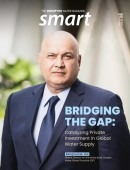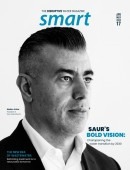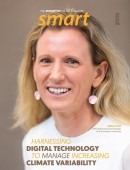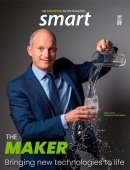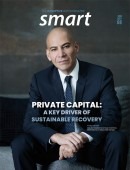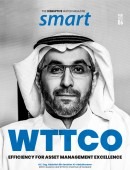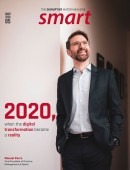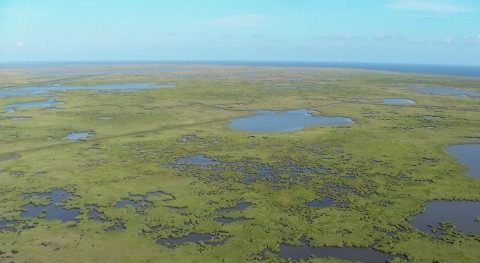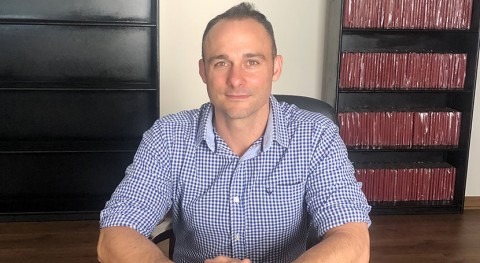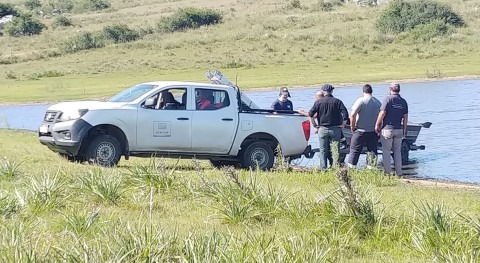Featured content
Water treatment software built for complex infrastructure management | EVS Water
Content summary
We launch the February issue of Smart Water Magazine Bimonthly. In this first issue of 2022, we would like to draw attention to water security in the African continent. Mr Osward Mulenga Chanda, Director of Water Development and Sanitation at the African Development Bank explains in an exclusive interview with Olivia Tempest the Bank's new Water Strategy, a key enabler for the socio-economic transformation of the continent. In addition, you will find several opinion articles touching on different aspects that impact access to water and sanitation in Africa. This issue also features a host of other interviews: Sara Walker, from the World Resources Institute, talks about corporate water stewardship and their work with agribusiness giant Cargill. We also hear from Jaime Baptista, president of the Lisbon International Center for Water, and from Juliette Lassman, policy analyst at the OECD, on water governance. Moving on to technology and innovation, SEKO reflects on how IoT is influencing pump technology, and ACCIONA explores the key role of knowledge management in the water industry. Find this and a lot more in Smart Water Magazine Bimonthly 11.
Features
ACCIONA’s knowledge management strategy, a key priority for the company, underpins its innovative solutions.

SEKO’s pump systems integrate digital technology to enhance operational efficiency, energy consumption and environmental impact.

Previously relegated to research projects, the pandemic boosted the use of wastewater based epidemiology worldwide: is it here to stay?

The tourism industry is taking steps to ensure it makes a sustainable use of water resources, a major attraction in tourist destinations.

Interviews
Osward Mulenga Chanda, African Development Bank. Director, Water Development and Sanitation
- Across Africa, water is unevenly distributed. Over 50% of water resources concentrated in Central Africa, less than 3% in North Africa
- Innovation in the water sector is crucial because it is key to developing other sectors, like agriculture, industry, health, and energy
- The new Water Strategy (2021-2025) promotes the water-food-energy-ecosystem nexus approaches and focuses on four pillars
- The Water Development and Sanitation department has a portfolio of water investments of over $6.2 billion and a pipeline of 123 projects
- The strategy is key given that water as a sector and enabler is critical to the achievement of the Bank’s five strategic priorities
- Countries interested in expanding irrigation capacity are advised to consider modernizing and upgrading existing irrigation schemes

Sara Walker, Director of Corporate Water Engagement, Global Water Program. World Resources Institute
- Many companies use WRI’s Aqueduct tools to assess water risks, and this is really foundational to starting a water stewardship journey
- There is a growing focus on looking beyond the company’s direct operations to the entire value chain – upstream or downstream
- Cargill has more than 1,000 direct operations in 70 countries, and its agricultural supply chain includes more than 6,500 watersheds
- By layering in where Cargill can really drive change, we were able to identify priority watersheds for target setting
- The Setting Enterprise Water Targets guidance is flexible across sectors and the value chain, to be applied in a variety of contexts
- By taking a rigorous approach to prioritizing hot spots, companies ensure they’re prioritizing funding in the areas that need it most

Juliette Lassman. Policy Analyst, Water Governance and Circular Economy. OECD
- The OECD Water Governance Programme has extended its geographical scope, developed new projects on the circular and the blue economy
- The OECD project Cities for a blue economy launched at COP26 in Glasgow aims to raise the profile of cities in the blue economy
- The Principles on Water Governance are used to facilitate dialogue, assess performance, guide reform, build capacities, and in research
- The first-ever Water Pavilion at COP26 is a testimony to the growing recognition of water’s role in climate mitigation and adaptation
- There is room for more inclusive governance, increase access to water and sanitation, and protect the most vulnerable from disasters
- A lesson learned from the Water Governance in African Cities report is the increasing involvement of local authorities in water security

Jaime Baptista, President of LIS-Water - Lisbon International Centre for Water
- LIS-Water is a new centre dedicated to public policies, regulation and management of water supply, wastewater, and stormwater services
- In the last three decades, Portugal’s population with public wastewater services, including treatment, increased from 28% to 84%
- The PENSAARP’s vision is to provide excellent water services that ensure effectiveness, efficiency, sustainability, and added value
- PENSAARP’s efficiency objectives include, among others, governance and aggregation of utilities, and their modernization and digitization
- RegWAS LAC aims to strengthen public policies and regulation of water and sanitation services in Latin America and the Caribbean
- To ensure the continuity and quality of services, the water sector will promote circularity and its inclusion in business models
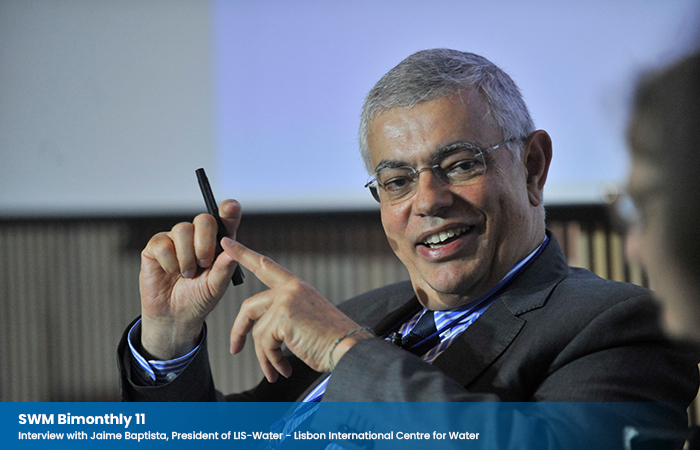
George Hutchinson, CTO of WaterIQ Technologies
- Algae management problems in water systems are due to phosphate pollution from a variety of sources, and overuse of algaecides
- Cyanobacteria (blue-green algae) have the ability to create complex hydrocarbons that are toxic to humans and many other animals
- Most of the problematic cyanobacteria algae can fix their own nitrogen from air, so nitrates are less of a growth issue for them
- The most effective thing to stem harmful algae blooms is to limit the use of phosphates and their ingress into our surface waters
- About 95% of the 70,000 species of algae are affected by ultrasound, so this is a proven non-chemical way to eliminate them
- Ultrasonic algae control devices break gas vesicles used by cyanobacteria to regulate buoyancy and have access to phosphates

Opinion articles
- Alain Mestat, Managing Partner at H2oVortex, Luxembourg
- Alison Wedgwood, CEO and Co-Founder of eWater Services Ltd
- Chaim Kolominskas, Manager EVS Water, Envirosuite
- Gage Muckleroy, PE, BCEE, Principal and Business Group Leader for Integrated Water and Asset Management, GHD & Hector Ruiz, PE, Executive Advisor, GHD Advisory and Water Market Lead - Asset Management, GHD
- Dr Hassan Aboelnga, Researcher and Chair of Urban Water Security at International Water Resources Association & Ms Ayat Soliman, Regional Director for the World Bank Group's Sustainable Development Department for the Middle East and North Africa (MNA) region
- John Davies, Chief Information Officer, Market Operator Services Limited (MOSL)
- Matt Hale, International Sales & Marketing Director, HRS Heat Exchangers
- Samantha F. Ravich, Chair, Center on Cyber and Technology Innovation, Foundation for Defense of Democracies & Trevor Logan, Research Analyst, Center on Cyber and Technology Innovation, Foundation for Defense of Democracies
- Zaid Railoun, Investment and Sustainability Associate, South Africa & Reshoketswe Maepa, Programme Support & Research - Portfolio Management Officer at Infrastructure South Africa (ISA)
- Chris Ashmore, Watericon CEO
![]()

